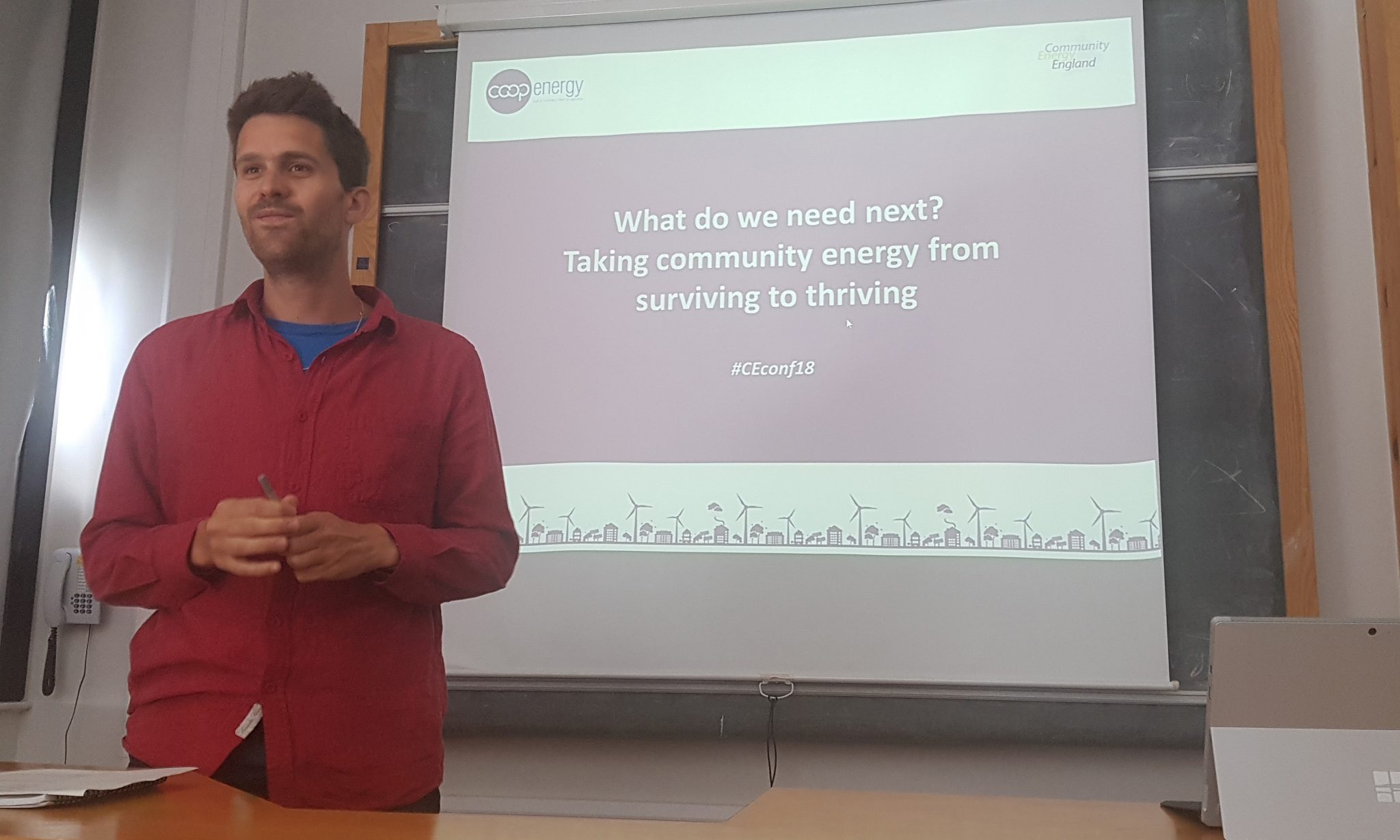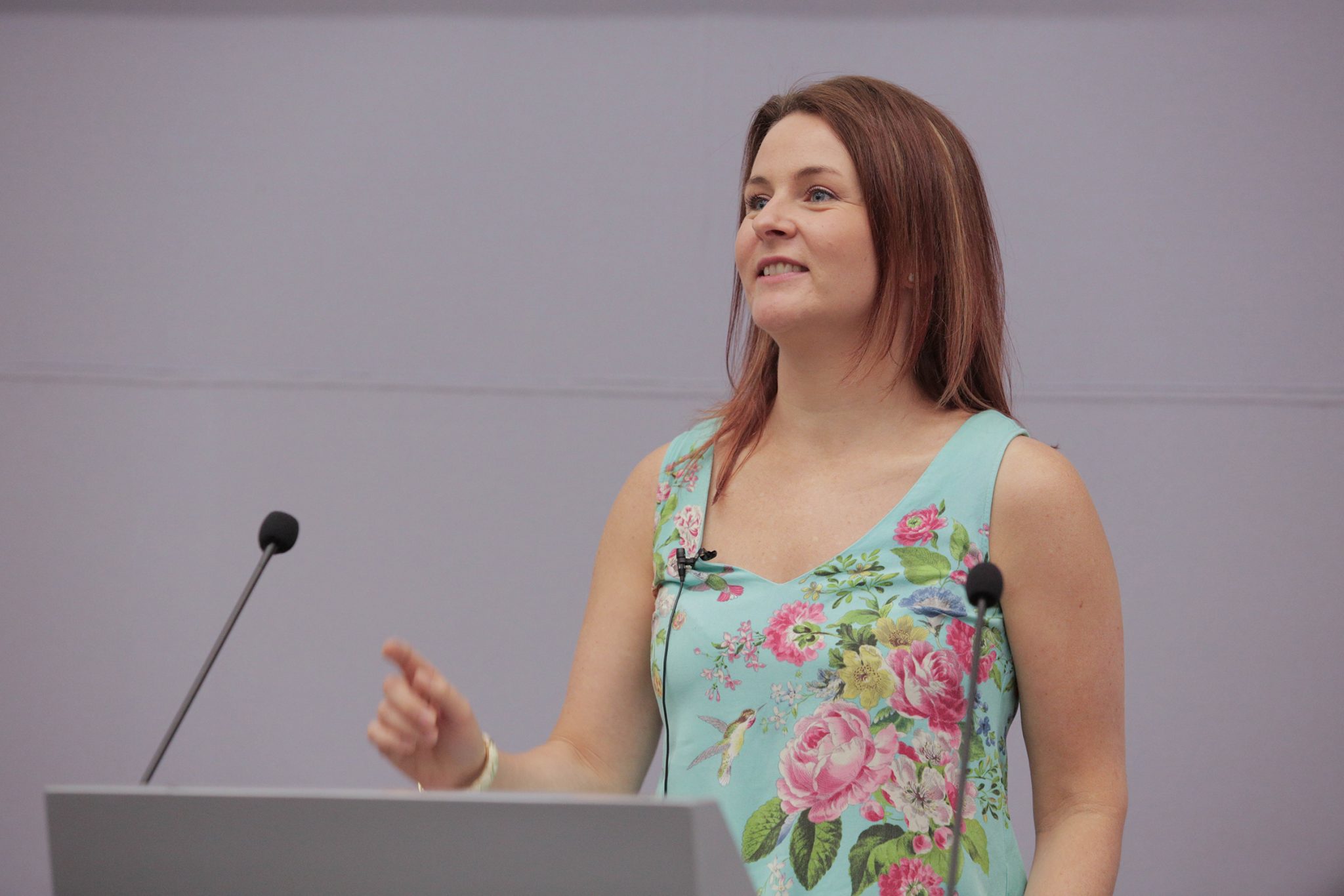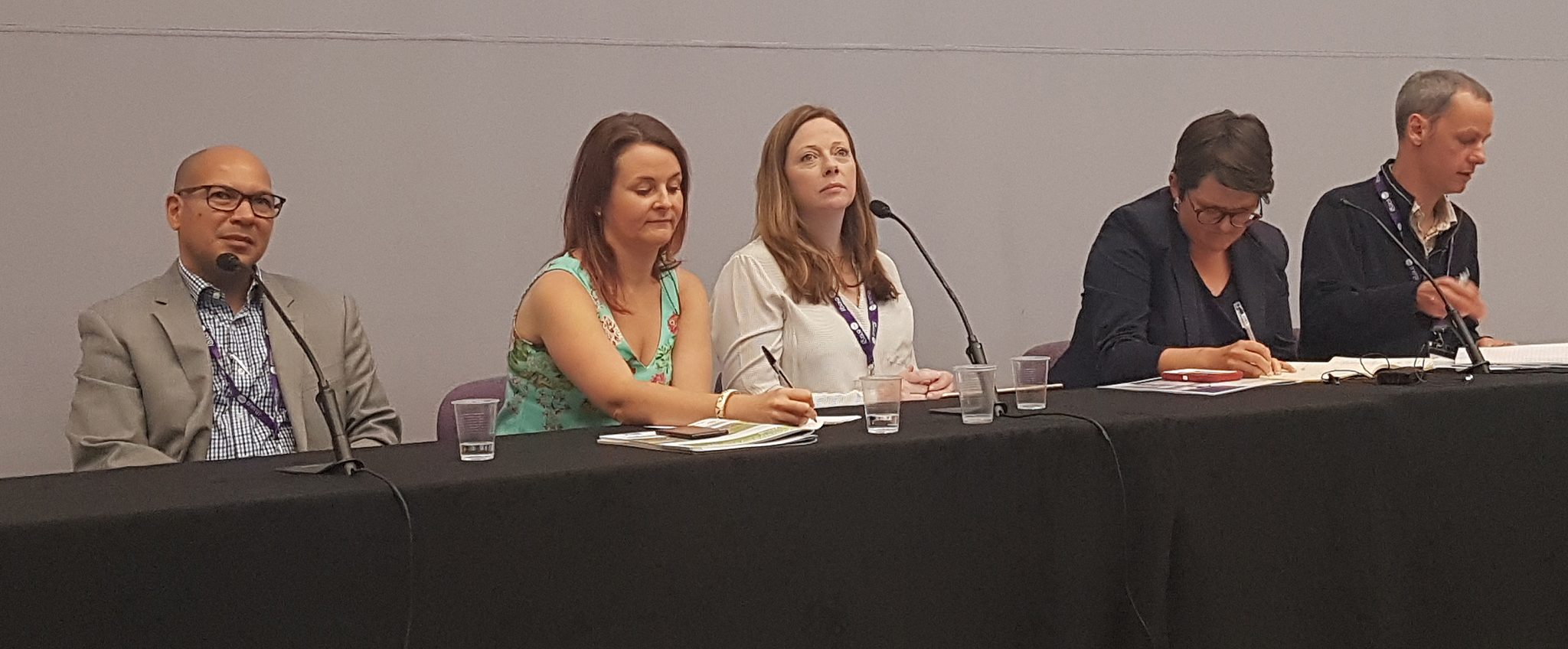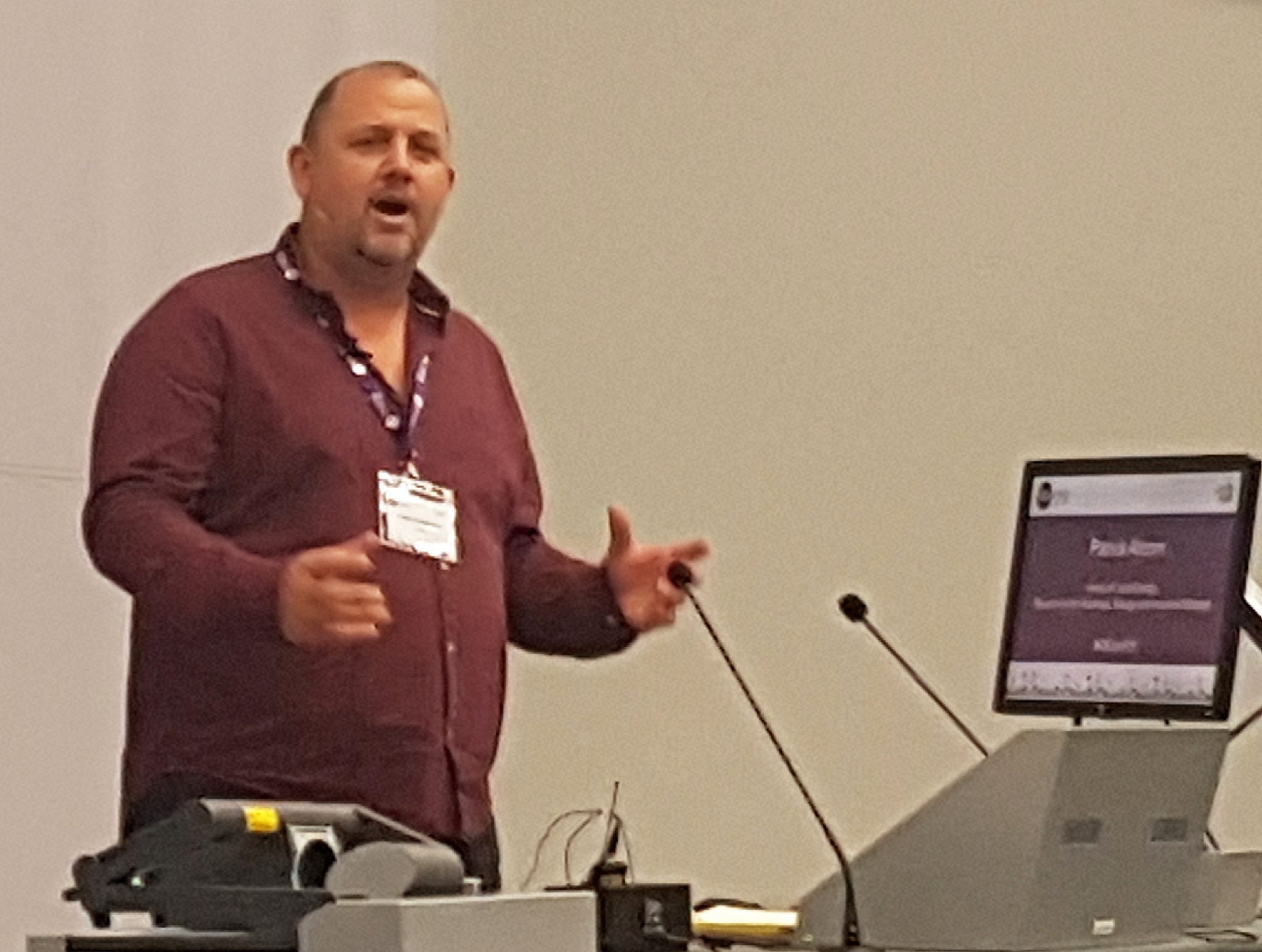Throughout Co-operatives Fortnight 2018, we’re sharing some of the brilliant stories from UK and international co-ops which show the #coopdifference in action: how, where and why co-operatives can make a difference to you and your communities.
The community energy sector has been told it must work to engage with policymakers and influencers at the highest level for a better legislative and regulatory regime.
Delegates had gathered at the Community Energy Conference in Manchester to assess the state of the sector. Among those urging for stronger lobbying was Hector Cruz, chief financial officer at Co-op Energy.
Onshore wind
A key issue, he said, was the need to lobby for the removal of blocks on onshore wind developments. “Government thinking is not in line with the views of the public on this,” he added.
The point was repeated at a break-out session, From Surviving To Thriving, where Max Wakefield, lead campaigner at 10:10 Climate Action, said planning blocks in England and a lack of public financial support amounted to a “de facto ban” on onshore wind.
“It’s clearly not acceptable for onshore wind to be hung out to dry in that way,” he said. “It is the cheapest and the cleanest energy alternative – a key technology for the UK if we’re going to meet our climate targets at cost.”
He said the national position was shifting on this, with a softening in the last Conservative manifesto, but “a small group of Tory MPs don’t want it in England”.
With the government weakened by the loss of its overall majority, it is in no position to force the issue, he added, but the balance of power could shift, as “a new intake of Tory MPs are pushing the way forward” in favour of onshore wind.

Paul Monaghan from Co-op Energy, who chaired the break-out session, argued that the narrow balance of power in Parliament offered an opportunity for onshore wind lobbyists. “All you need is 15-20 Tories on board and you’re done,” he said. “This is a door and this is our time to push it.”
Technology
At the main morning session of the conference, Emma Bridge, chief executive of Community Energy England, said the sector had experienced three difficult years, with unexpected regulatory changes, including cuts to tax relief and feed-in tarrifs, but, she added: “There is still enthusiasm”.
She said it was important for the sector to explore new avenues for growth and development – such as bringing existing assets into community ownership, and improving the skills base through training. And there was scope to develop “more holistic approaches” thanks to new technologies, such as battery storage.

Mr Cruz also stressed the potential of battery storage, which was seeing important technical advances, allowing a 24-hour energy supply from intermittent renewable sources like wind.
But he said there needed to be a connections process. “Looking at the future – down the road 20, 30 years – it won’t be the National Grid running everything, it will be local grids,” he said. “We need to get the investment in place but it’s easier said than done.”
Carla Blockley, from Electricity North West – one of the UK’s 14 distribution network operators regulated by Ofgem – said new technology was important in the country’s energy transition away from carbon.
She told delegates the drivers for change in the energy sector were the switch to wind, solar, storage and nuclear, and the electrification of rail, metro and road transport.
With the rise of new alternative technologies in the home such as heat pumps, heat recovery, insulation and fuel cells, and the rise of big data from smart meters, flexible devices and electric vehicle charging points, the energy sector faced a key challenge, she said. This was a “trilemma” – the need to balance reliability, sustainability and affordability.

She said there was untapped potential for community energy here, pointing out that in a recent survey, 2% of respondents were involved in community energy schemes but 70% were interested in them. “Customers can help come up with and deliver solutions,” she said. “The system is much more complex now; the requirements of the network are much more dynamic.
“We need new sets of skills and capabilities … we need to work out how we will get those skills – but it also means there is more participation in the network. Not everybody will have new technology like heat pumps and we need to make sure no one is left behind.”
She added: “There are challenges for community energy – we want to maintain the momentum; scale up developments to increase impact; develop new business models; and maximise on community engagement.”
Going green
Several participants in the conference were present at the Green Summit, hosted by Greater Manchester mayor Andy Burnham in March to discuss the ways to make the devolved region “one of the leading green cities in Europe”.
Emma Bridge said: “There was an exciting proposal round a municipal energy company. I would like to see a community-owned municipal energy company, or community involvement.”
Also present was Dr Carly McLachlan, from the Tyndall Centre for Climate Change Research. She said: “If you really want Greater Manchester to be carbon neutral, then every decision you make must have that goal. If you want community energy to be a part of that, you would be embedding that in the DNA as well.”
Her colleague Dr Tim Braunholtz-Speight, from the University of Manchester, discussed a research project the two were carrying out into financial models for community energy. So far it has collected a year’s crude data from 48 organisations, and he called for more input. “We want to carry out a multi factor analysis to isolate key factors for financial viability,” he said.
Regulation
Patrick Allcorn, head of local energy at the Department of Business, Energy and Industrial Strategy, told delegates in a speech that “community energy is not just about generation” but offered opportunities in heat, storage, energy efficiency and the transition of the supply system from distribution network operators (DNOs) to distribution system operators (DSOs).

As part of the decentralisation of energy, the operator will take a more active role in managing local electricity generation and use.
“The big opportunities that are coming forward are about the opportunities of place,” said Mr Allcorn. “Stop thinking about energy for energy’s sake.”
He said the sector needed to create an evidence base to back up its demand for state support, for instance by proving the number of jobs it would create, and to work with local government to ensure better planning.
“Local authorities who collect waste have a fuel source that they aren’t optimising,” he told the conference. “They also plan demand but they do it in isolation from the networks they are planning for.”
He gave the example of 200,000 new homes planned in Manchester. “How much have they consulted Electricity North West about where that power is coming from? The power is an afterthought.
“And if we build those houses smart with efficient local energy, what about houses that haven’t been retrofitted? A new house on one side pays £500 a year for energy and across the road a house that’s 150 years old pays £1,500 for energy. How acceptable is that as a community?”
He added that the regulator would take a tough line on energy communities which went off grid. “It would transfer costs of grid to those least able to afford it,” he warned. “If that happens you are dead in the water.”
But he said there were huge possibilities for the sector, dealing with issues such as loneliness, by powering transport – and elderly care, by offering affordable heat so people could stay in their homes.
“Energy is unlocking a social care problem,” he said. “It’s an opportunity for local community energy.”
He added: “The UK in the last 10 years has grown more than any G7 country and has decarbonised more than any other G7 country. This is the biggest economic opportunity for the country.”

